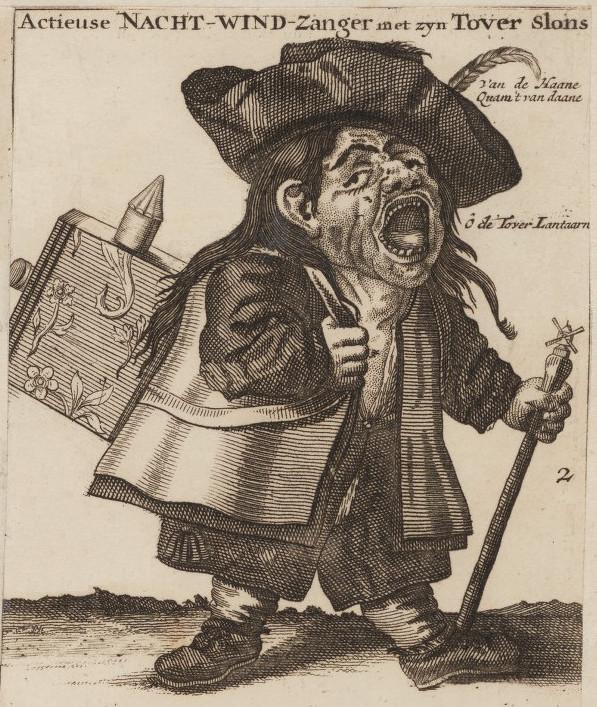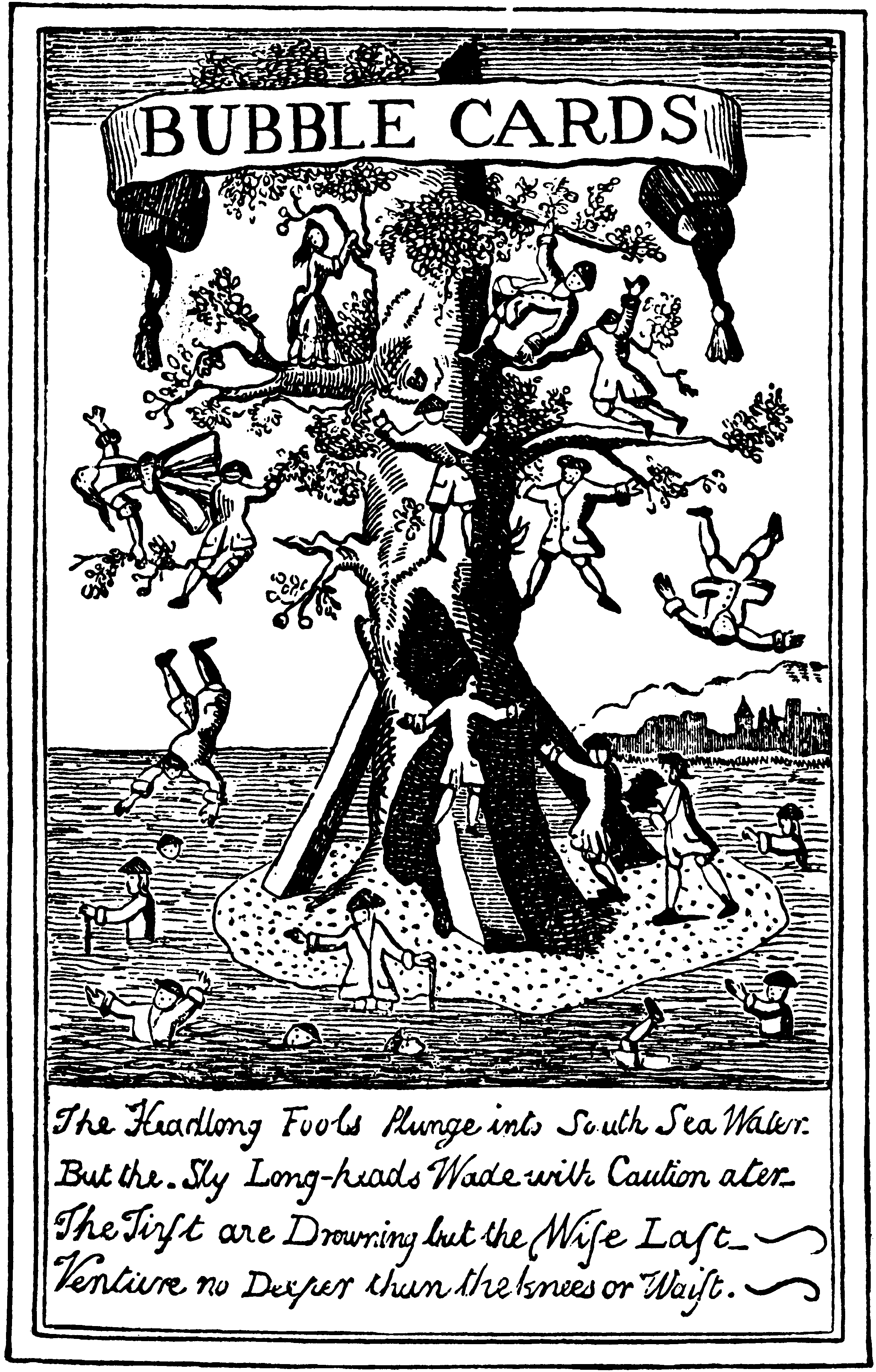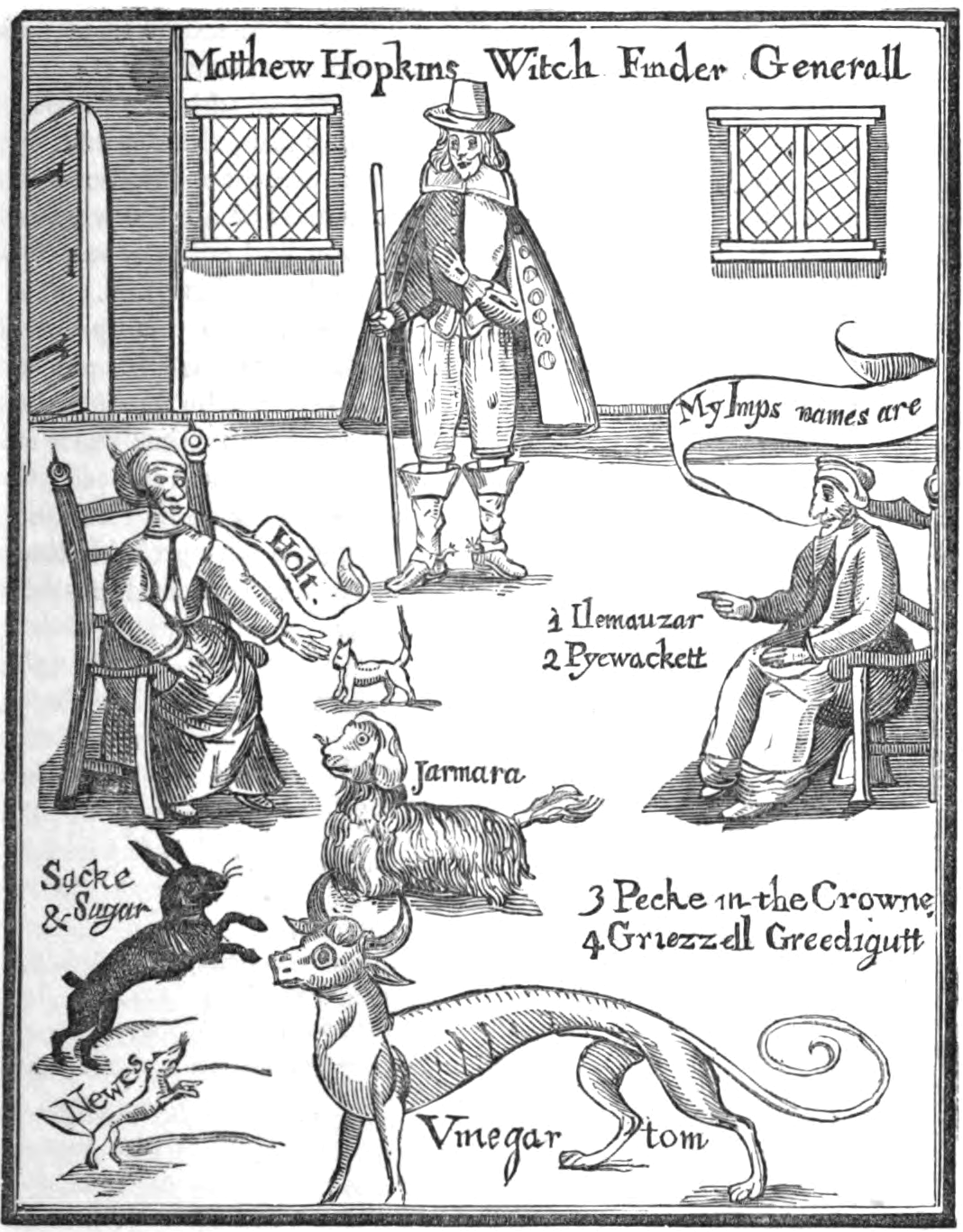Extraordinary Popular Delusions And The Madness Of Crowds on:
[Wikipedia]
[Google]
[Amazon]

 ''Extraordinary Popular Delusions and the Madness of Crowds'' is an early study of
''Extraordinary Popular Delusions and the Madness of Crowds'' is an early study of



 ''Extraordinary Popular Delusions and the Madness of Crowds'' is an early study of
''Extraordinary Popular Delusions and the Madness of Crowds'' is an early study of crowd psychology
Crowd psychology, also known as mob psychology, is a branch of social psychology. Social psychologists have developed several theories for explaining the ways in which the psychology of a crowd differs from and interacts with that of the individ ...
by Scottish journalist Charles Mackay Charles (or Charlie) Mackay, McKay, or MacKay may refer to:
* Charles Mackay (author) (1814–1889), Scottish poet, journalist, author, anthologist, novelist, and songwriter
* Charles McKay (1855–1883), American naturalist and explorer
* Charles ...
, first published in 1841 under the title ''Memoirs of Extraordinary Popular Delusions''. The book was published in three volumes: "National Delusions", "Peculiar Follies", and "Philosophical Delusions". Mackay was an accomplished teller of stories, though he wrote in a journalistic and somewhat sensational style.
The subjects of Mackay's debunking include alchemy
Alchemy (from Arabic: ''al-kīmiyā''; from Ancient Greek: χυμεία, ''khumeía'') is an ancient branch of natural philosophy, a philosophical and protoscientific tradition that was historically practiced in China, India, the Muslim world, ...
, crusades
The Crusades were a series of religious wars initiated, supported, and sometimes directed by the Latin Church in the medieval period. The best known of these Crusades are those to the Holy Land in the period between 1095 and 1291 that were in ...
, duel
A duel is an arranged engagement in combat between two people, with matched weapons, in accordance with agreed-upon Code duello, rules.
During the 17th and 18th centuries (and earlier), duels were mostly single combats fought with swords (the r ...
s, economic bubble
An economic bubble (also called a speculative bubble or a financial bubble) is a period when current asset prices greatly exceed their intrinsic valuation, being the valuation that the underlying long-term fundamentals justify. Bubbles can be c ...
s, fortune-telling, haunted houses, the Drummer of Tedworth, the influence of politics and religion on the shapes of beards and hair
Hair is a protein filament that grows from follicles found in the dermis. Hair is one of the defining characteristics of mammals.
The human body, apart from areas of glabrous skin, is covered in follicles which produce thick terminal and f ...
, magnetisers (influence of imagination in curing disease), murder through poison
Poison is a chemical substance that has a detrimental effect to life. The term is used in a wide range of scientific fields and industries, where it is often specifically defined. It may also be applied colloquially or figuratively, with a broa ...
ing, prophecies, popular admiration of great thieves, popular follies of great cities, and relic
In religion, a relic is an object or article of religious significance from the past. It usually consists of the physical remains of a saint or the personal effects of the saint or venerated person preserved for purposes of veneration as a tangi ...
s. Present-day writers on economics, such as Michael Lewis and Andrew Tobias, laud the three chapters on economic bubbles.
In later editions, Mackay added a footnote referencing the Railway Mania
Railway Mania was an instance of a stock market bubble in the United Kingdom of Great Britain and Ireland in the 1840s. It followed a common pattern: as the price of railway shares increased, speculators invested more money, which further incre ...
of the 1840s as another "popular delusion" which was at least as important as the South Sea Bubble
South is one of the cardinal directions or compass points. The direction is the opposite of north and is perpendicular to both east and west.
Etymology
The word ''south'' comes from Old English ''sūþ'', from earlier Proto-Germanic ''*sunþaz ...
. In the 21st century, the mathematician Andrew Odlyzko pointed out, in a published lecture, that Mackay himself played a role in this economic bubble; as a leader writer in '' The Glasgow Argus'', Mackay wrote on 2 October 1845: "There is no reason whatever to fear a crash".
Volume I: National Delusions
Economic bubbles
The first volume begins with a discussion of threeeconomic bubble
An economic bubble (also called a speculative bubble or a financial bubble) is a period when current asset prices greatly exceed their intrinsic valuation, being the valuation that the underlying long-term fundamentals justify. Bubbles can be c ...
s, or financial manias: the South Sea Company bubble of 1711–1720, the Mississippi Company
The Mississippi Company (french: Compagnie du Mississippi; founded 1684, named the Company of the West from 1717, and the Company of the Indies from 1719) was a corporation holding a business monopoly in French colonies in North America and th ...
bubble of 1719–1720, and the Dutch tulip mania of the early seventeenth century. According to Mackay, during this bubble, speculators
In finance, speculation is the purchase of an asset (a commodity, goods, or real estate) with the hope that it will become more valuable shortly. (It can also refer to short sales in which the speculator hopes for a decline in value.)
Many s ...
from all walks of life bought and sold tulip bulbs and had even declared futures contracts on them. Allegedly, some tulip bulb varieties briefly became the most expensive objects in the world during 1637. Mackay's accounts are enlivened by colorful, comedic anecdotes, such as the Parisian hunchback who supposedly profited by renting out his hump as a writing desk during the height of the mania surrounding the Mississippi Company
The Mississippi Company (french: Compagnie du Mississippi; founded 1684, named the Company of the West from 1717, and the Company of the Indies from 1719) was a corporation holding a business monopoly in French colonies in North America and th ...
.
Two modern researchers, Peter Garber and Anne Goldgar, independently conclude that Mackay greatly exaggerated the scale and effects of the Tulip bubble, and Mike Dash, in his modern popular history of the alleged bubble, notes that he believes the importance and extent of the tulip mania were overstated.
Chapters
* The Mississippi Scheme * The South Sea Bubble * The Tulip Mania * Relics * Modern Prophecies * Popular Admiration for Great Thieves (''cf''hybristophilia
Hybristophilia is a sexual interest in and attraction to those who commit crimes, a paraphilia in which sexual arousal, facilitation, and attainment of orgasm are responsive to and contingent upon being with a partner known to have committed a cri ...
)
* Influence of Politics and Religion on the Hair and Beard
* Duels and Ordeals
* The Love of the Marvellous and the Disbelief of the True
* Popular Follies in Great Cities
* Old Price Riots
* The Thugs, or Phansigars
Volume II: Peculiar Follies

Crusades
Mackay describes the history of theCrusades
The Crusades were a series of religious wars initiated, supported, and sometimes directed by the Latin Church in the medieval period. The best known of these Crusades are those to the Holy Land in the period between 1095 and 1291 that were in ...
as a kind of mania of the Middle Ages
In the history of Europe, the Middle Ages or medieval period lasted approximately from the late 5th to the late 15th centuries, similar to the post-classical period of global history. It began with the fall of the Western Roman Empire a ...
, precipitated by the pilgrimages of Europeans to the Holy Land
The Holy Land; Arabic: or is an area roughly located between the Mediterranean Sea and the Eastern Bank of the Jordan River, traditionally synonymous both with the biblical Land of Israel and with the region of Palestine. The term "Holy ...
. Mackay is generally unsympathetic to the Crusaders, whom he compares unfavourably to the superior civilisation of Asia: "Europe expended millions of her treasures, and the blood of two millions of her children; and a handful of quarrelsome knights retained possession of Palestine for about one hundred years!"
Witch mania
Witch trials in 16th- and 17th-century Western Europe are the primary focus of the "Witch Mania" section of the book, which asserts that this was a time when ill fortune was likely to be attributed to supernatural causes. Mackay notes that many of these cases were initiated as a way of settling scores among neighbors or associates, and that extremely low standards of evidence were applied to most of these trials. Mackay claims that "thousands upon thousands" of people were executed as witches over two and a half centuries, with the largest numbers killed in Germany.Sections
* The Crusades * The Witch Mania * The Slow Poisoners * Haunted HousesVolume III: Philosophical Delusions

Alchemists
The section on ''alchemysts'' focuses primarily on efforts to turn base metals into gold. Mackay notes that many of these practitioners were themselves deluded, convinced that these feats could be performed if they discovered the correct old recipe or stumbled upon the right combination of ingredients. Although alchemists gained money from their sponsors, mainly noblemen, he notes that the belief in alchemy by sponsors could be hazardous to its practitioners, as it wasn't rare for an unscrupulous noble to imprison a supposed alchemist until he could produce gold.Books
* Book I: The Alchemysts * Book II: Fortune Telling * Book III: The MagnetisersInfluence and modern responses
The book remains in print, and writers continue to discuss its influence, particularly the section on financial bubbles. (See Goldsmith and Lewis, below.) * FinancierBernard Baruch
Bernard Mannes Baruch (August 19, 1870 – June 20, 1965) was an American financier and statesman.
After amassing a fortune on the New York Stock Exchange, he impressed President Woodrow Wilson by managing the nation's economic mobilization in ...
credited the lessons he learned from ''Extraordinary Popular Delusions and the Madness of Crowds'' with his decision to sell all of his stock ahead of the Wall Street Crash of 1929
The Wall Street Crash of 1929, also known as the Great Crash, was a major American stock market crash that occurred in the autumn of 1929. It started in September and ended late in October, when share prices on the New York Stock Exchange colla ...
.
* Kurt Vonnegut's seminal novel, '' Slaughterhouse-Five'', references the book.
* The book was the initial inspiration for Richard Condie's National Film Board of Canada
The National Film Board of Canada (NFB; french: Office national du film du Canada (ONF)) is Canada's public film and digital media producer and distributor. An agency of the Government of Canada, the NFB produces and distributes documentary f ...
animated short film ''John Law and the Mississippi Bubble'' (1978).
* ''Forbes
''Forbes'' () is an American business magazine owned by Integrated Whale Media Investments and the Forbes family. Published eight times a year, it features articles on finance, industry, investing, and marketing topics. ''Forbes'' also re ...
'' magazine compared Mackay's descriptions of financial bubbles to the Chinese stock bubble of 2007
The Chinese stock bubble of 2007 () was the global stock market plunge of February 27, and November 2007, which wiped out hundreds of billions of market value. After rumors that governmental Chinese economic authorities were going to raise int ...
, claiming that the " emotional feedback loop" that drove the Chinese market was very similar to what Mackay described.
* Neil Gaiman
Neil Richard MacKinnon GaimanBorn as Neil Richard Gaiman, with "MacKinnon" added on the occasion of his marriage to Amanda Palmer. ; ( Neil Richard Gaiman; born 10 November 1960) is an English author of short fiction, novels, comic books, gr ...
borrows from the title in an issue of his popular comic series, ''The Sandman
The Sandman is a mythical character in European folklore who puts people to sleep and encourages and inspires beautiful dreams by sprinkling magical sand onto their eyes.
Representation in traditional folklore
The Sandman is a traditional charact ...
'', in a story featuring a writer whose novel is titled "... And the Madness of Crowds".
* Author and executive coach Marshall Goldsmith discussed the book in depth in '' BusinessWeek'', drawing extensive parallels between the financial bubbles Mackay wrote about and financial bubbles today. Other writers also frequently point to the book to explain recent financial bubbles.
* Financial writer Michael Lewis includes the financial mania chapters in his book ''The Real Price of Everything: Rediscovering the Six Classics of Economics'' as one of the six great works of economics, along with writings by Adam Smith
Adam Smith (baptized 1723 – 17 July 1790) was a Scottish economist and philosopher who was a pioneer in the thinking of political economy and key figure during the Scottish Enlightenment. Seen by some as "The Father of Economics"——— ...
, Thomas Robert Malthus
Thomas Robert Malthus (; 13/14 February 1766 – 29 December 1834) was an English cleric, scholar and influential economist in the fields of political economy and demography.
In his 1798 book '' An Essay on the Principle of Population'', Mal ...
, David Ricardo
David Ricardo (18 April 1772 – 11 September 1823) was a British Political economy, political economist. He was one of the most influential of the Classical economics, classical economists along with Thomas Robert Malthus, Thomas Malthus, Ad ...
, Thorstein Veblen, and John Maynard Keynes
John Maynard Keynes, 1st Baron Keynes, ( ; 5 June 1883 – 21 April 1946), was an English economist whose ideas fundamentally changed the theory and practice of macroeconomics and the economic policies of governments. Originally trained in ...
.
* Author and journalist Will Self writes a column for ''New Statesman
The ''New Statesman'' is a British political and cultural magazine published in London. Founded as a weekly review of politics and literature on 12 April 1913, it was at first connected with Sidney and Beatrice Webb and other leading members ...
'', "Madness of Crowds", which Self says takes its title from Mackay's book.
* James Surowiecki, in '' The Wisdom of Crowds'' (2004), takes a different view of crowd behavior, saying that under certain circumstances, crowds or groups may have better information and make better decisions than even the best-informed individual.
* Canadian author Louise Penny
Louise Penny is a Canadian author of mystery novels set in the Canadian province of Quebec centred on the work of francophone Chief Inspector Armand Gamache of the Sûreté du Québec. Penny's first career was as a radio broadcaster for the Can ...
used MacKay as an inspiration for her 2021 novel "The Madness of Crowds."
* American synthpop band Information Society released a song titled after the book in 2021. Its vocals are mostly samples of cult leader Jim Jones.
Quotations
* "Men, it has been well said, think in herds; it will be seen that they go mad in herds, while they only recover their senses slowly, and one by one." * "Of all the offspring of Time, Error is the most ancient, and is so old and familiar an acquaintance, that Truth, when discovered, comes upon most of us like an intruder, and meets the intruder's welcome." * "How flattering to the pride of man to think that the stars in their courses watch over him, and typify, by their movements and aspects, the joys or the sorrows that await him! He, less in proportion to the universe than the all-but invisible insects that feed in myriads on a summer's leaf are to this great globe itself, fondly imagines that eternal worlds were chiefly created to prognosticate his fate." * "We go out of our course to make ourselves uncomfortable; the cup of life is not bitter enough to our palate, and we distill superfluous poison to put into it, or conjure up hideous things to frighten ourselves at, which would never exist if we did not make them." * "We find that whole communities suddenly fix their minds upon one object, and go mad in its pursuit; that millions of people become simultaneously impressed with one delusion, and run after it, till their attention is caught by some new folly more captivating than the first." * "The obnoxious hat was often snatched from his head and thrown into the gutter by some practical joker, and then raised, covered with mud, upon the end of a stick, for the admiration of the spectators, who held their sides with laughter, and exclaimed, in the pauses of their mirth, 'Oh, what a shocking bad hat!' 'What a shocking bad hat!'"See also
*Crowd psychology
Crowd psychology, also known as mob psychology, is a branch of social psychology. Social psychologists have developed several theories for explaining the ways in which the psychology of a crowd differs from and interacts with that of the individ ...
* Economic bubble
An economic bubble (also called a speculative bubble or a financial bubble) is a period when current asset prices greatly exceed their intrinsic valuation, being the valuation that the underlying long-term fundamentals justify. Bubbles can be c ...
* Groupthink
* Irrational exuberance
* Moral panic
A moral panic is a widespread feeling of fear, often an irrational one, that some evil person or thing threatens the values, interests, or well-being of a community or society. It is "the process of arousing social concern over an issue", usua ...
* ''Pseudodoxia Epidemica
''Pseudodoxia Epidemica or Enquiries into very many received tenents and commonly presumed truths'', also known simply as ''Pseudodoxia Epidemica'' or ''Vulgar Errors'', is a work by Thomas Browne challenging and refuting the "vulgar" or common ...
''
Notes
References
* * * * *External links
The book is in the public domain and is available online from a number of sources: * * * * * {{DEFAULTSORT:Extraordinary Popular Delusions And The Madness Of Crowds 1841 books Books about crowd psychology Books about social psychology History of mental health in the United Kingdom Economic bubbles Works by Scottish people 1841 in Scotland Mass psychogenic illness